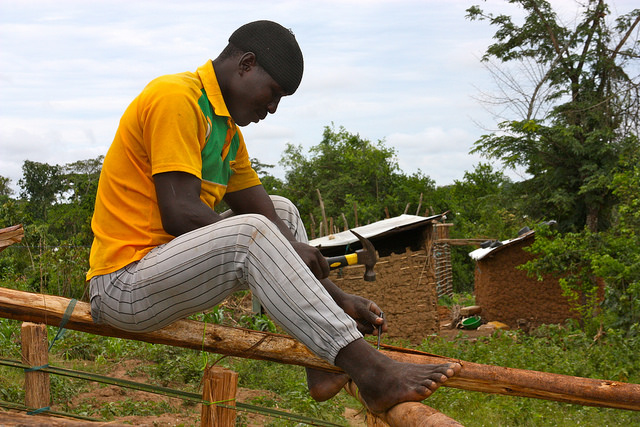June 20 marks World Refugee Day, and the movement of displaced individuals across the globe has become one of the defining challenges of this decade. In 2016, the United Nations High Commissioner for Refugees (UNHCR) reported that a staggering 65.3 million people around the world had been forced to move from their homes; of these, an estimated 21.3 million have been officially classified as refugees.
Sudden influxes of these new residents have often created tension in host countries, with some fretting the newcomers pose security or economic threats. But contrary to the populist rhetoric about disappearing jobs, research shows that when supported with the basic means to participate in a local economy, refugees can, at least in some contexts, boost economic activity and create substantial positive spillovers for their host communities, contributing to the gains of native-owned businesses.
In partnership with the World Food Program (WFP), the UN agency that provides food assistance in many refugee camps worldwide, colleagues at the University of California, Davis and I modeled the impacts of different types of refugee aid on surrounding host-country economies in Rwanda and Uganda.
Our report Economic Impact of Refugee Settlements in Uganda examined two refugee settlements, Adjumani and Rwamwanja, and the 15 km radius around each one.
In these settlements, the WFP provides residents with assistance in the form of food packages or a cash allowance. While these two types of distributions help refugees to ease into the resettlement process, we found that additional provisions, especially farmland, yield even greater benefits to refugees and local economies alike.
Uganda is provides one of the more progressive refugee assistance programs in the world, providing freedom of movement, work rights, and access to farmland. Farmland helps set refugees up to be self-reliant, promotes food security and more diversity in what they eat, and enables them to become active participants in local markets.
In the Rwamwanja settlement, for example, refugees tend to spend a high percentage of their income within the local economy, purchasing food items to diversify their diets as well as seeds and fertilizers from host-country businesses, in an intensive effort to improve crop yield on their farms.
The result is that each additional refugee household in Rwamwanja boosts overall local agricultural and livestock production. Each additional refugee household that is provided cash and farmland creates an income spillover for communities around Rwamwanja (net of WFP aid cost) of UGX 3 million ($876), while a household without land generates UGX 2.3 million ($671).
In Rwanda as well, research indicates that refugees positively impact commerce and income in and around their Gihembe, Kigeme and Nyabiheke settlements: 17.3 percent of surveyed business within a 10 km radius of these camps confirmed that most of their customers are refugees.
In Gihembe, this additional demand helped host-country households see their income increase by as much as $41 per refugee who resettled in the area; in the Nyabiheke camp incomes increased by up to $69.
Refugees also often become active participants in local labor markets, as increased demand for goods and services stimulates hiring. This additional labor supply can sometimes create tensions with local populations. But instead of seeing jobs disappearing, Ugandan nationals are actually finding employment opportunities in refugee settlements like Adjumani—as construction workers and laborers in agriculture and livestock production. Thirty five percent of refugee-owned business reported that a substantial number of their employees were from host-country households.
Rwanda and Uganda are onto something. They have realized that providing some land and including refugees in their labor markets is a far more logical and beneficial approach than limiting economic engagement and employment opportunities for refugees eager to earn a living.
Such benefits are not guaranteed to materialize in every context. But where productive resources are abundant and the international community provides support, host countries should view refugees as a potential boon rather than a burden or threat. The WFP understands that, and tries to locate refugee settlements in areas where they can contribute positively to economic growth.
Though they may suffer through forced migrations and harsh living conditions, refugees have productive capacities and assets. The additional demand for goods and services that both refugees and settlement workers create can stimulate local economies. Refugee resettlement programs with a roadmap for economic and social integration can not only add value to host economies, but provide millions of displaced people the opportunity to build a future in a new land.
Mateusz Filipski is a Research Fellow in IFPRI’s Development Strategy and Governance Division.







